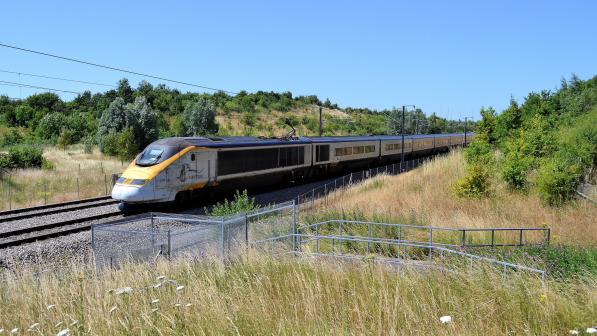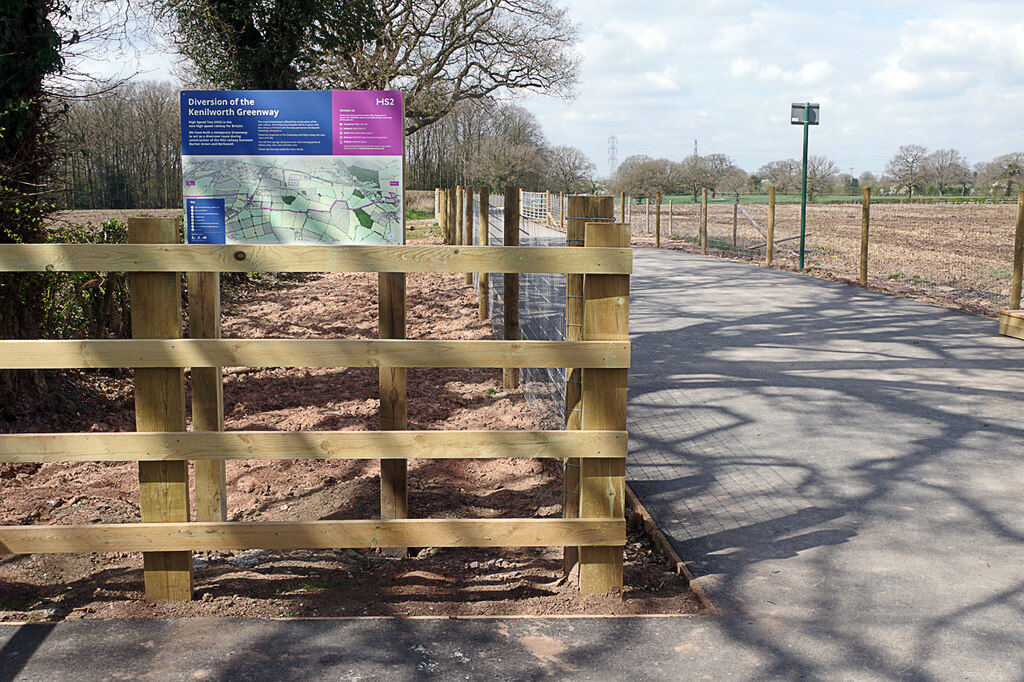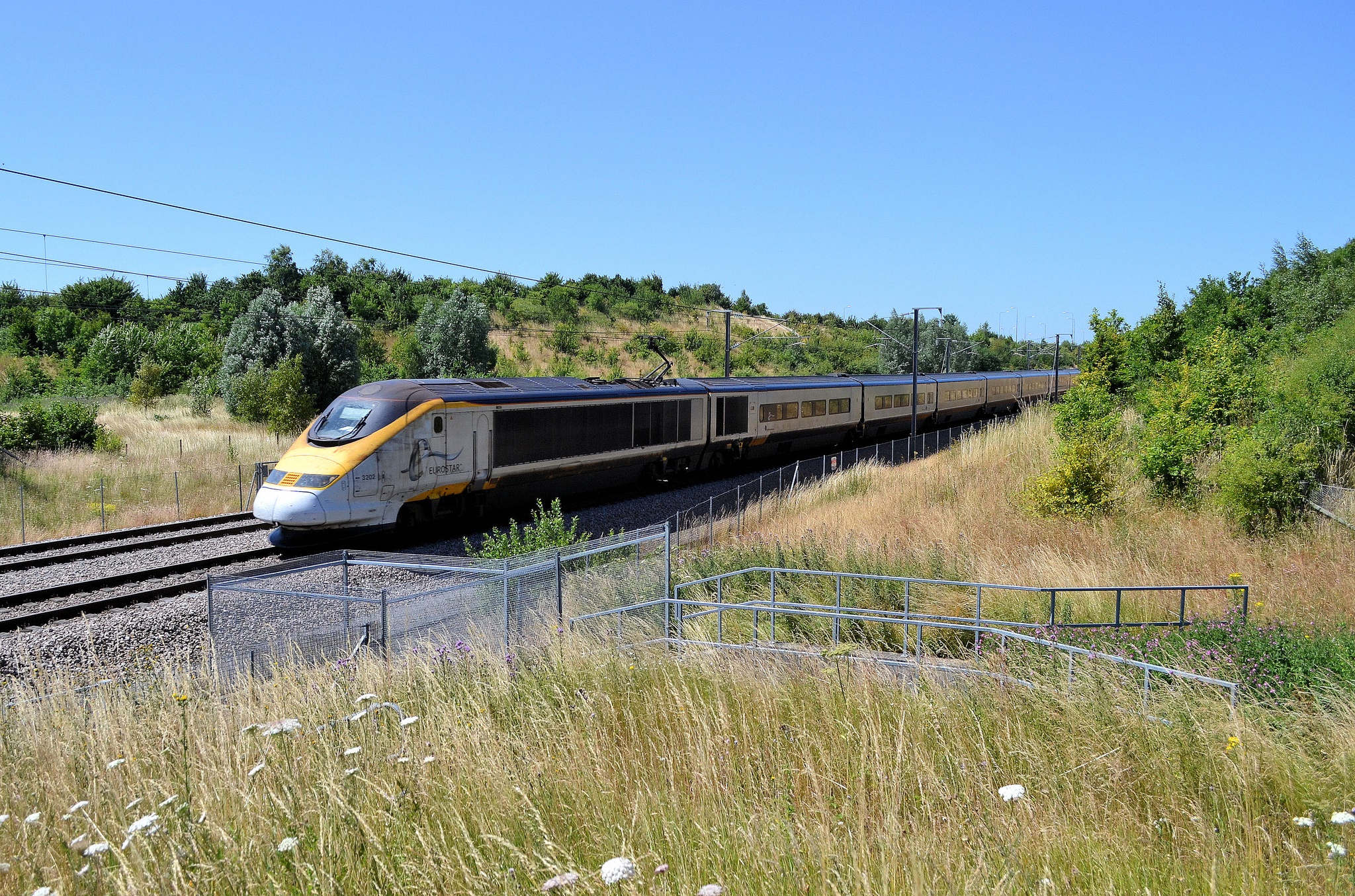High cycle safety stakes on HS2

Cycling UK has submitted a petition against Phase 2a of the High Speed 2 (HS2) rail scheme. This is the section from the West Midlands (near Lichfield) to the planned hub station at Crewe.
We lodged a similar petition against the original Bill, covering HS2 Phase 1 – this is now the High Speed Rail (London - West Midlands) Act 2017. This is not because we oppose the HS2 scheme per se – we’re maintaining a neutral stance on that question. However both our original petition, and the current one (see below pdf), had three main objectives:
- To ensure that all permanent or temporary works to highways (including rights of way) and cycle-specific facilities are ‘cycle-proofed’ to high standards – i.e. that cycle-friendly design is considered right from the outset – so as to maintain and wherever possible enhance the safety and convenience of cycle movement along and across the HS2 corridor.
- To ensure that HS2 station developments are similarly ‘cycle-proofed’, i.e. that they have good cycle-friendly access to, from, within and through them, along with ample secure cycle parking, hire and storage facilities.
- To ensure that cycle safety is reflected in lorry routing and in the selection of lorry operators, vehicles and drivers when contracting for construction and other work associated with the HS2 project.
The term ‘cycle proofing’ is used to describe the principle of ensuring that cycle-friendly provision is designed-in from the word ‘go’ when planning and constructing any new or altered highways (including rights of way) and cycle-specific facilities, whether these are temporary (during the construction period) or permanent. Given the lack of investment in cycling, we regularly emphasise the need for ‘cycle-proofing’, to maximise the benefits for cycling from other infrastructure investments.
Thanks to lobbying by Cycling UK and our partners, the Government has specifically tasked Highways England with ‘cycle-proofing’ all such schemes connected with England’s trunk roads and motorways, it encourages local authorities to do likewise, and it supports a Cycle Proofing Working Group (CPWG, which I sit on) to advise it on ‘cycle proofing’ standards, processes, professional training and so on.
We also called for the principle of ‘cycle-proofing’ to apply to HS2 stations, including cycle parking and storage provision. Note though that unfortunately we can’t use the Bill petitioning process to call for cycle spaces on the trains themselves - Cycling UK will look at this for a future campaign. These and future High Speed Rail Bills are all about obtaining the legal rights to purchase land and carry out the construction and associated works. They can’t cover things like the pricing of tickets, conditions of carriage or the internal layout of the trains.
Our petition against the Phase 1 Bill led to some very constructive negotiations with HS2 Ltd, the Government-owned company tasked with delivering the HS2 scheme. We did eventually end up presenting our petition in Parliament, to ensure we got our way on an issue about safe lorry design. The result though was that we received a number of legally-binding ‘assurances’ from the Transport Secretary covering each of the above points.
Cycling UK found out that HS2 Ltd had adopted some really terrible highway design standards...we believe this in itself amounts to a breach of the ministerial assurances they had given us.
Roger Geffen, Cycling UK Policy Director
Last September though, Department for Transport officials came to a meeting of the CPWG and told us that, in effect, they were not going to honour their ‘cycle-proofing’ commitment after all. Worse still, Cycling UK found out that HS2 Ltd had adopted some really terrible highway design standards without even telling the CPWG, let alone seeking our input. We believe this in itself amounts to a breach of the ministerial assurances they had given us.
Doubtless this is because the cost estimates for HS2 keep rising, hence they are under pressure to make savings. Yet if the Government cannot afford the comparatively tiny sums needed to ‘cycle-proof’ their own multi-billion pound construction project, what kind of example does that set for cash-strapped local councils?
So this time we are seeking an assurance specifically relating to consultation on the design standards to be adopted. We have also listed a number of locations where we believe high-quality cycling links are needed – with huge thanks to John Grimshaw (founder and former Chief Executive of Sustrans) for his fantastic work on identifying detailed scheme proposals for each of these.
I hope we can negotiate with HS2 in the same constructive spirit as we did last time around. But I also hope that the assurances we seek this time will prove more durable!






